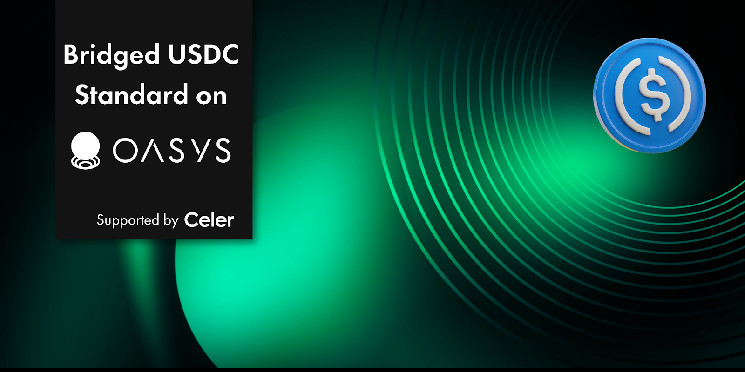
The non-custodial asset bridge provider Celer and the blockchain gaming ecosystem Oasys have partnered to provide Bridged USDC Standard support on the Oasys blockchain. The global financial technology company Circle Internet Financial (Circle) developed the Bridged USDC Standard to allow qualifying blockchains to have a future upgrade route from bridged USDC to native USDC.
The world’s biggest regulated US dollar-backed stablecoin, USDC, is issued by Circle. Before a possible upgrade to natively issued USDC occurs, bridged versions of USDC that adhere to Circle’s Standard may operate as a stand-in for USDC for developers and users in new blockchain ecosystems. This allows for an accelerated adoption of dollar-denominated payments and financial activities.
A new deployment of bridged USDC that complies with Circle’s standard will be made accessible to all developers and users within the Oasys ecosystem in partnership with Celer Network. With effect from right now, this new bridged USDC will be referred to as “Bridged USDC (Celer)” and will have the token symbol “USDC.e.” It is backed 1:1 by USDC that is locked in smart contracts that are built on Ethereum.
Roadmap for Circulating New Bridged USDC
A thorough transition plan for circulating the new USDC.e. has been prepared by Oasys. This multi-tier strategy highlights Oasys’ commitment to user convenience and asset security throughout this transition by giving developers and users a full year to switch to USDC.e or “un-bridge” their legacy bridged USDC (known as “Legacy Bridged USDC (Celer)” with the token symbol “USDC.e-legacy”) back to Ethereum.
For additional information on the transition plans for switching to the new USDC.e., as well as more comprehensive instructions on the swapping and bridging procedure, developers and users are advised to visit the Oasys blog.
